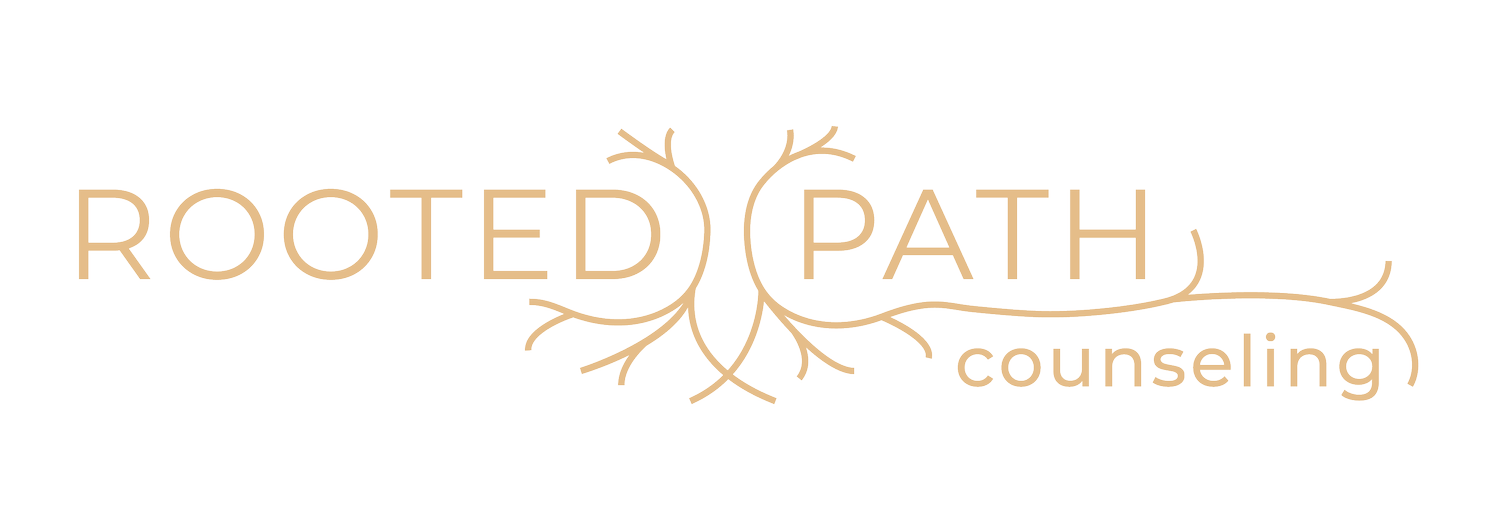
Trauma-Informed Counseling
"The key to healing is not just knowing what happened but transforming how the mind, body, and soul still remember it. Most of all, healing is an act of accepting, reclaiming and being able to love our most wounded and rejected young selves."
- Janina Fisher, PhD

The impacts of trauma live not just in our memories, but in the very tissues of our bodies - stored as tension, protection, and unspoken survival strategies.
My approach to trauma treatment creates a container of support and attunement that extends from our therapeutic relationship into your own internal landscape.
In our work together, we'll explore how your past experiences may continue to shape your present life. We'll get curious about the protective patterns that once kept you safe and how they may now be leaving you feeling stuck. As you develop a deeper relationship with your inner world, these survival strategies can transform into new pathways of connection and self-compassion.
Relational Trauma: The Silent Wound
Relational trauma can occur when important relationships in our lives, especially during childhood, harm us instead of nurturing us. Imagine a plant that needs sunlight and water to grow. Our brains and bodies need consistent care, safety, and understanding from others, especially during development.
When we grow up with relational trauma, it’s like growing emotional roots in rocky soil. Foundational relationships are transformed into landscapes of disconnection, fear, and uncertainty, reshaping our understanding of connection.
Complex PTSD (C-PTSD): When Survival Becomes Your Default
C-PTSD develops as a response to ongoing, inescapable traumatic events or chronic unmet meets. Unlike traditional PTSD, which is often triggered by a single traumatic event, C-PTSD forms over time as the mind and body adapt to long-term emotional or physical threats.
Imagine your mind and body as a sophisticated defense system that doesn't just react to immediate danger, but fundamentally restructures itself to survive prolonged, unpredictable harm. This isn't just a response; it's a multilayered survival mechanism that transforms how you perceive safety, relationships, and your own sense of self.
Intergenerational Trauma: The Inherited Emotional Landscape
Trauma can be an unspoken legacy, passed silently through generations like a family heirloom. It lingers in untold stories, in the spaces between conversations, in the ways we navigate pain and stress. Like roots beneath the surface, it spreads quietly, influencing the landscape of our emotions and relationships. Without acknowledgment or healing, it continues shaping the next generation in ways both seen and unseen.
Systemic racism and oppression fuel intergenerational trauma, disproportionately affecting people of color, LGBTQ+ individuals, and other marginalized groups. When communities endure ongoing discrimination, violence, and systemic deprivation, collective trauma can weave itself into family bonds and cultural memory.
“Trauma is not only an event that took place in the past; it is also the imprint left by that experience on mind, brain, and body.”
— Dr. Bessel Van Derk Kolk
Common Trauma Responses: Understanding Your Experience
Feeling emotionally numb, perpetually anxious, or bouncing between the two
Struggling with persistent procrastination and emotional paralysis
Constantly prioritizing others' needs at your own expense
Difficulty with closeness and/or fear of abandonment
Emotional responses that feel unpredictable and overwhelming
Shame, self-blame, and feelings of helplessness
A sense of inner conflict or confused sense identity
Struggling with perfectionism, people-pleasing, and feelings of unworthiness
Sleep disturbances and frequent exhaustion
Difficulty focusing or maintaining mental clarity
Persistent feelings of hopelessness and a lack of safety in the world
Curious to understand how these responses connect to your unique experience? Set up a free 15 minute consultation call to hear more about my approach to trauma-treatment.
My Therapeutic Approach
My practice is rooted in current trauma research and neuroscience, honoring the complexity of individual experiences while also considering the broader societal and cultural contexts that shape our lives.
I draw on a variety of evidence-based approaches to support your unique healing journey:
Internal Family Systems (IFS):
Exploring and integrating different parts of the self to foster inner harmony
Attachment Theory:
Supporting the development of healthy, secure relationships
Trauma-Focused Cognitive Behavioral Therapy (TF-CBT):
Addressing and reframing thought patterns and beliefs shaped by trauma
Polyvagal Theory:
Understanding and regulating the nervous system to build a sense of safety and calm
Mindfulness-Based Practices:
Cultivating present-moment awareness to reduce stress and enhance emotional resilience
Trauma-Informed Yoga Principles: Incorporating body-based practices to connect with and heal through the body
Creative Expression:
Using art, movement, or writing to access and process emotions in non-verbal ways
Dialectical Behavior Therapy (DBT): Strengthening skills for emotional regulation, interpersonal effectiveness, and distress tolerance

Ready to Begin Your Healing Journey?
Whether you're just beginning to explore your experiences or have been on your journey for a while, I'm here to support you. Contact me today to schedule a free 15 minute consultation and learn more about how we can work together toward your healing and recovery.




